-
-

FLUORIDE
What Is Stannous Fluoride Toothpaste?Discover what is Stannous Fluoride Toothpaste and its importance to prevent cavities and other oral health problems.

TEETH WHITENING
Whitening toothpaste - hydrogen peroxide vs. carbamide peroxideIf you lose one or more of your front teeth due to injury or decay, you may feel ...
-
Science & InnovationOral Health Commitment
- Oral Health Commitment
- Bright Smiles, Bright Futures
- Educational Resources
- Mobile Dental Van
- Volunteer
- ORAL HEALTH CHECK
- PRODUCT MATCH
- Oral Health and Dental Care | Colgate®
- Oral Health
- Baby's First Laugh: How To Get Your Infant To Giggle
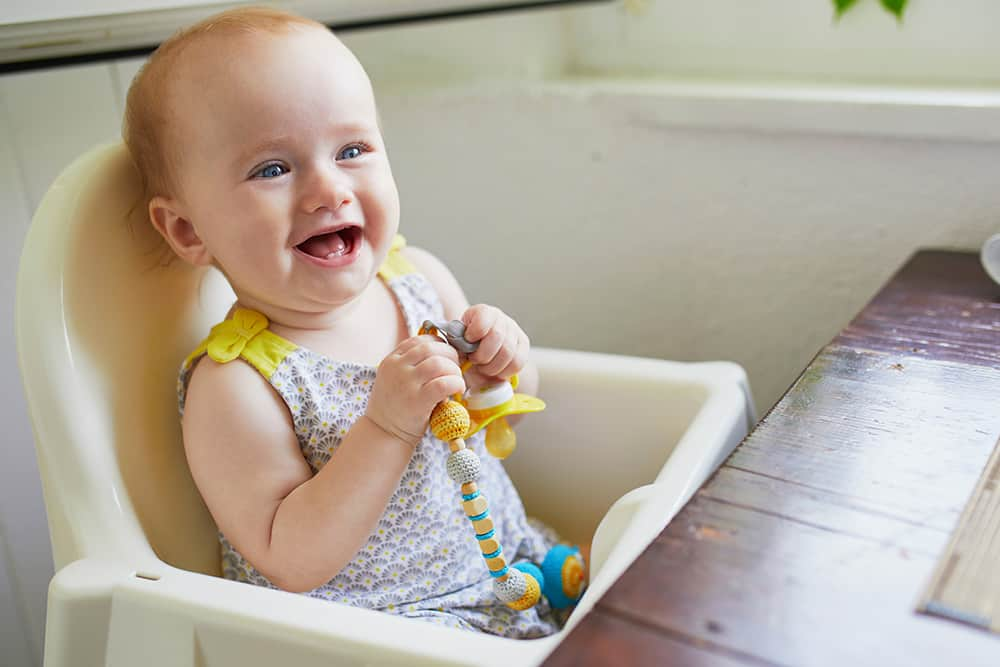

Waiting for your baby's first milestone laugh can be both exciting and frustrating. If you haven't heard it yet, here's how you can get your baby to giggle or laugh for the first time –and you'll remember it forever.
When Should I Expect My Baby to Smile and Laugh for the First Time?
While your baby will make noises and some facial interactions from birth, a social smile will begin to develop around three months of age. By four months, your baby will start smiling spontaneously at people. Once your baby masters smiling and can recognize the positive reactions, sound effects like cooing will begin. Cooing will turn into giggles, and soon after, you will likely hear your baby's first laugh.
How Can I Get My Baby to Smile and Laugh?
Babies won't laugh until they are ready, so while you can and should encourage laughter, don't be discouraged if it isn't happening as soon as you'd hoped.
Try the following to get that first giggle or laugh:
- Copy your baby's sounds
- Act excited and smile when your baby smiles or makes sounds
- Pay close attention to what your baby likes so you can repeat it
- Play games such a peek-a-boo
- Give age-appropriate toys to your baby, such as rattles and picture books
- Put toys near your baby, so they can reach for them or kick them
What if My Baby Smiles a Lot but Doesn't Laugh?
If your baby smiles spontaneously but doesn't seem to want to laugh, you might worry that you're doing something wrong. Don't forget that every baby is born with different innate temperaments, which could influence how much your baby wants to laugh.
That said, the CDC cautions that if your baby hasn't laughed or doesn't laugh regularly by age six months old, you should talk to your baby's doctor or nurse to ensure that this isn't a sign of a possible developmental delay or hearing impairment.
The first few months of your child's life is an exciting time, and each milestone brings up a whole range of emotions for you as a parent, from your baby's first words to the eruption of their first teeth. Waiting for your baby's first laugh can be frustrating, but remember, the wait is worth it!
Oral Care Center articles are reviewed by an oral health medical professional. This information is for educational purposes only. This content is not intended to be a substitute for professional medical advice, diagnosis or treatment. Always seek the advice of your dentist, physician or other qualified healthcare provider.
Related Articles
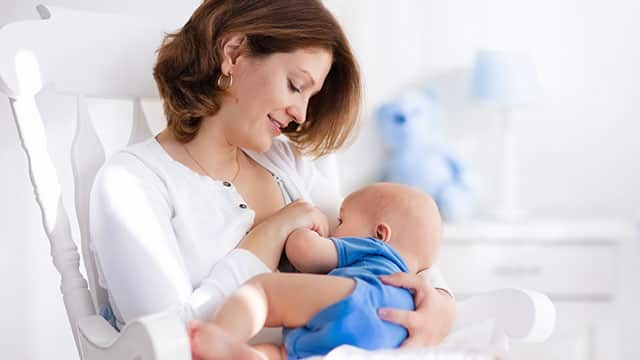
Infant oral care
Breastfeeding And Teething: Your Baby's Oral HealthWelcoming a newborn into the world is exciting for the whole family, but as most new mothers now, breastfeeding and teething will be your immediate focus.

Infant oral care
Baby's First Smile and Laugh: How to Get Your Infant to GiggleNothing is more precious than the playful giggle of an infant. If you haven't heard it yet, here's how to get your baby to laugh.
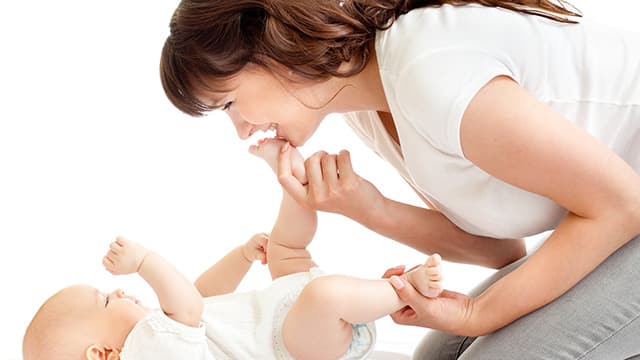
Infant oral care
Getting Dental Work and Breastfeeding: Is It a Good Idea?Can you get dental work while breastfeeding? Click here to learn more about dental health routine to keep your body in the best condition with Colgate®.
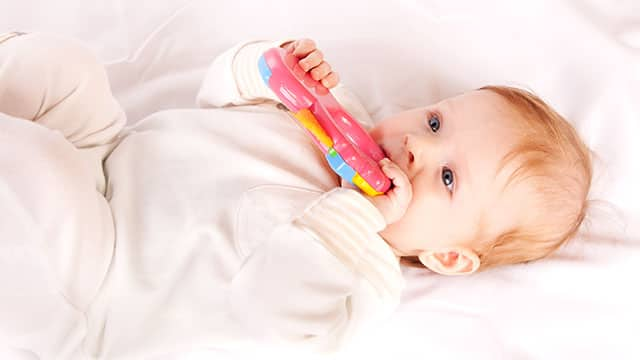
Infant oral care
Teething Biscuits to Soothe Your BabyWhen your baby is teething, there are a few do's and don'ts to relieve the discomfort. Are teething biscuits OK for your baby? Find out more, here.
Related Products
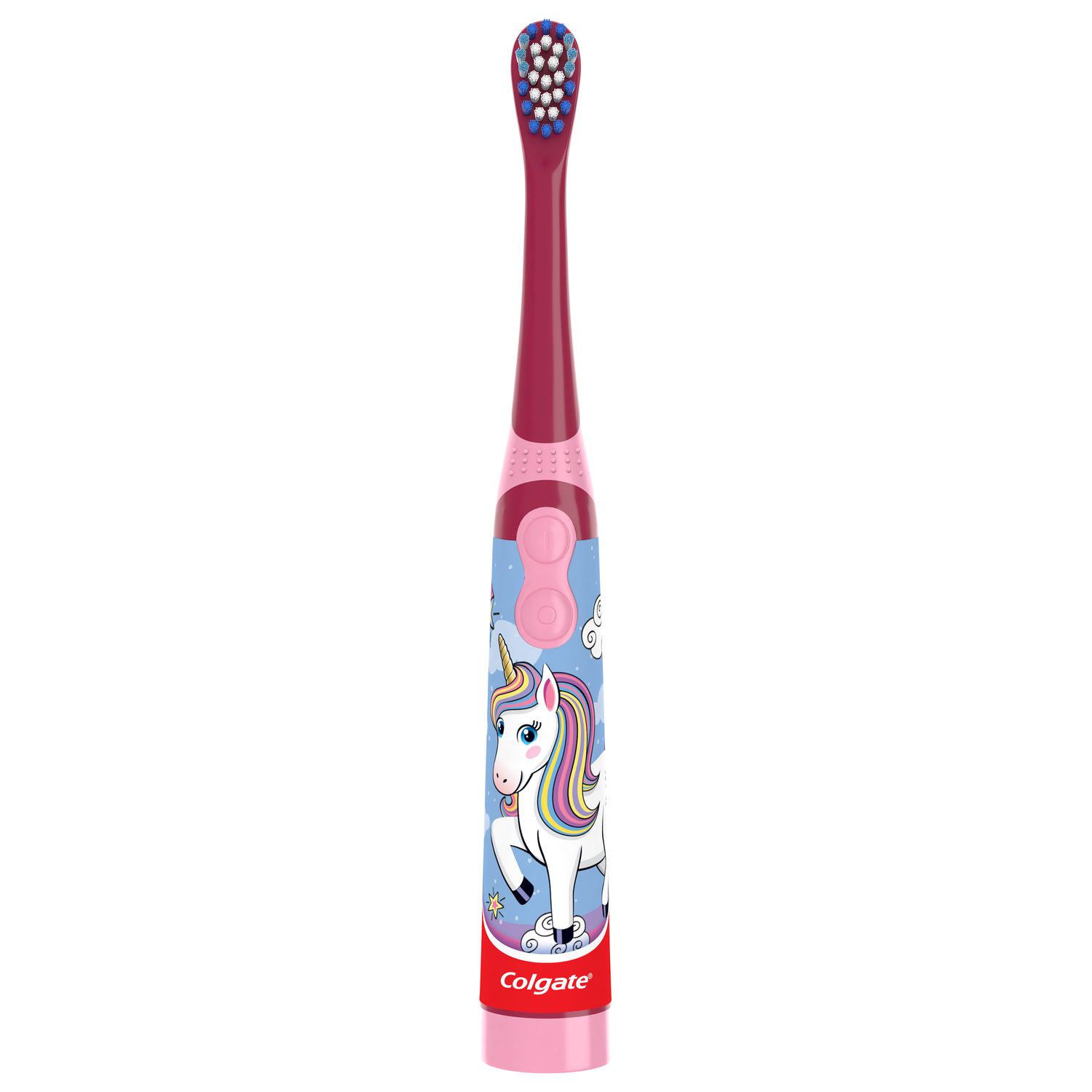
The Colgate Kids Unicorn Battery Toothbrush provides a great clean made fun.
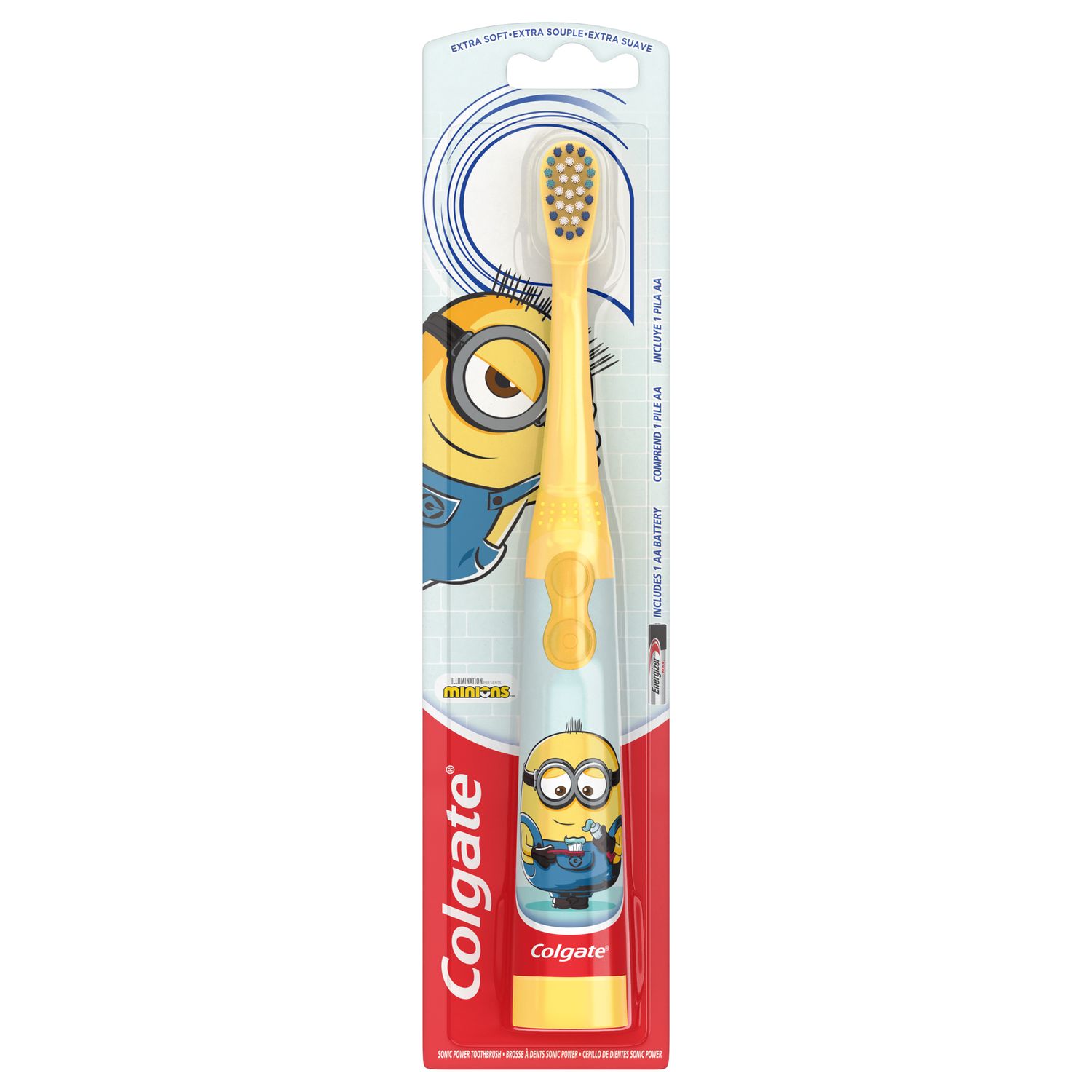
The Colgate Kids Minions Battery Toothbrush provides a great clean made fun.

My First® Toothbrush from Colgate® is designed for children age 2 and younger, with extra soft bristles for a gentle and effective clean. Try it today!

The Colgate Kids Battery Powered Minecraft Toothbrush is a kids battery toothbrush that provides fun toothbrushing to keep children’s teeth clean and sweep away plaque.

Helping dental professionals
More professionals across the world trust Colgate. Find resources, products, and information to give your patients a healthier future




